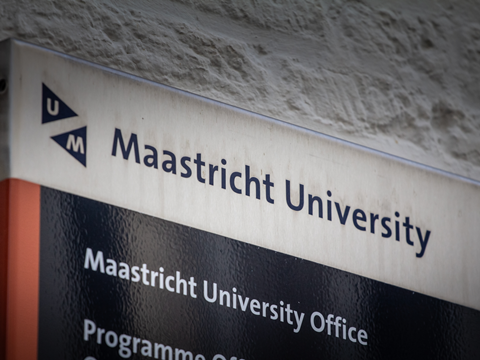
Maastricht University has been granted funding from the Dutch government in three projects pursuing circularity for plastics, including a collaboration with Danone, The Kraft Heinz Company, and others to improve recycling technologies for polyolefin-based food packaging.
According to the university, one million tons of plastics are discarded in the Netherlands annually, yet only 15% of this figure is recycled at high quality. Targets have been set to recycle 50% of all Dutch plastics by 2030 and to achieve complete circularity for plastic production by 2050.
In pursuit of these goals, the Making Plastics Circular: Technical Innovations initiative will distribute a total of six million euros between ten projects. Each study will last for five years and will focus on one of three themes – the design of circular plastics; new characterization, sorting, and waste techniques; or new recycling techniques.
These efforts fall under the Danish government’s National Growth Fund programme, which plans to support projects pursuing long-term economic growth by investing €20 billion between 2021 and 2025. The National Growth Fund’s Circular Plastics NL (CPNL) initiative is scheduled to run for eight years and features eight programme lines; each seeks to overcome bottlenecks and close the cycle on existing plastics, accelerate the transition with grants, and achieve sustainable growth opportunities for the Dutch economy.
Maastricht University is working on three of the ten research projects selected. In one project, it is collaborating with Basell Polyolefin, BASF Chemetall, Danone, The Kraft Heinz Company, and the University of Ghent to close the loop on polyolefin-based food packaging with the CLEANpack project.
CLEANpack hopes to offer ‘an objective and unique scientific understanding of the potential of the most common advanced mechanical recycling options to achieve food-grade polyolefin recyclate’ by analyzing and improving physical recycling processes, including mechanical recycling technologies. The information is expected to guide policy and encourage investment in such technologies.
Meanwhile, Maastricht University is working with SABIC to help provide a scientific basis for the use of fully organic phosphorous-sulphur compounds and increase the amount and quality of its recyclate.
Polypropylene is often used as a base material for developing flame-retardant products in the electronics and transportation sectors, the university explains. In this context, single-molecule flame retardants like phosphorous-sulphur is thought to offer ‘promising’ resistance against flames at low concentrations. Nevertheless, such materials are not yet in commercial use, as their recyclability is currently limited.
Additionally, the university’s work with Westlake Epoxy intends to make widespread epoxy-amine networks like wind turbine blades recyclable. To do so, the project seeks to transform one bond present in the network into another, achieving reversable behaviour under the influence of a stimulus such as temperature. The process is set to be tested on coatings and composites.
The news comes after Mura Technology signed a five-year research partnership with Ghent University’s Laboratory for Chemical Technology to build a continuous flow, pilot scale testing facility for hard-to-recycle polymers. The project intends to weigh up the potential of products from circular feedstocks and help expand technologies in the future.
Last year, Amcor launched a Lift-Off session dedicated to Michigan State University. Student teams and start-ups were encouraged to present ideas within the focus areas of alternative barriers, smart and connected packaging, new business models, biomaterials, fibre, and recycling; up to eight would be shortlisted to pitch their ideas to Amcor, with the winners receiving up to $250,000 in seed funding.
The Dutch government also declared Notpla’s seaweed-based packaging plastic-free under the EU Single-Use Plastics Directive, with the solution anticipated to replace a minimum of 15 million single-use plastic packaging units in the Netherlands.
If you liked this story, you might also enjoy:
How are the top brands progressing on packaging sustainability?
Sustainable Innovation Report 2024: Current trends and future priorities
Reuse vs. single use – which is better for the environment?
The ultimate guide to global plastic sustainability regulation














No comments yet